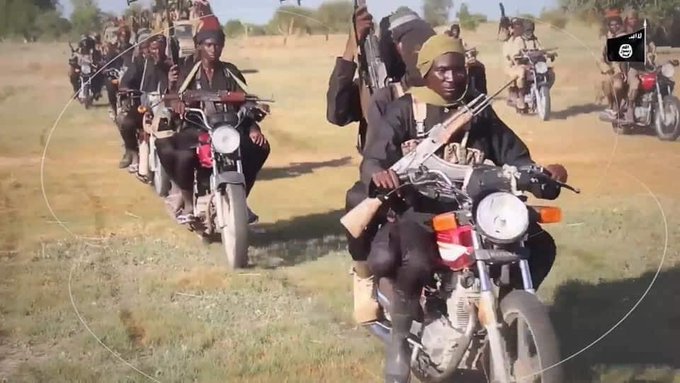In recent years, the Global Terrorism Index has categorised Nigeria as one of the most terrorised countries in the world. Indeed, terrorist activities are pervasive across many regions of the country, especially the North-East, North-West, North-Central and South-East. Cases of bombing, kidnapping, mass abduction, arson, and carjacking dominate the mass media. The perpetrators of these acts of ultra-violence against both hard and soft targets include jihadist fighters, separatist agitators, criminal gangs, and ethnic and religious insurgents. Between May 2015 and May 2022 alone, over 55,430 people were killed under President Buhari’s watch. Upon assumption of power in May 2015, the retired army general had promised to address violent insecurity, fight corruption and fix the ailing economy. Three months to the end of Buhari’s second tenure in May 2023, most of these promises have not been realised, even though there have been several profile convictions. The massacre of civilians and servicemen continues to increase while the counterterrorism strategy of government flounders. Over the years, efforts to unravel the identity of terrorism sponsors and prosecute them have not succeeded.
On November 23, 2022, President Buhari and the Central Bank of Nigeria (CBN) unveiled the redesigned ₦200, ₦500 and ₦1,000 Naira notes which the CBN had announced earlier in October. The policy restricted individuals and corporate organisations, respectively, to a weekly ₦100,000 and ₦500,000 cash withdrawal over the counter (OTC). In response to rumours that the currency swap was aimed at inflicting further hardship on innocent Nigerians, President Buhari said the Naira redesign was aimed instead at corrupt persons and terror financiers who hoard ill-gotten cash to bankroll criminal activities and violence. Thus, the Naira swap would make the old notes unusable by the criminals who have stacked them. Following the socioeconomic and political upheavals that have trailed the policy’s implementation since January 2023, this edition of Nextier Policy Weekly examines the logic and challenges of this bold step by the apex bank.
Terrorism Financing in Nigeria
Finance is a critical resource for terrorist organisations because it enables them to procure weapons, buy food, acquire training, and incentivise their fighters. In Nigeria, members of the Boko Haram, Ansaru and Islamic State West Africa terrorist organisations and other bandits have resorted to sundry criminal sources to fund their terror campaigns. Often, they engage in ransom kidnapping, bank robberies, and imposition of taxes in areas where they control. Also, the terrorists rely on donations from both threatened and sympathetic individuals to fund their activities. In particular, kidnapping for ransom has proved very lucrative in Nigeria. For example, between April 2014 and June 2022, about 1,548 schoolchildren were reportedly abducted by terrorists and bandits in 11 separate incidents. According to a report, Nigerians paid at least $18.34 million (₦7 billion) in ransoms to kidnappers between 2011 and 2020. In the first half of 2021 alone, 2,371 persons were kidnapped in the country, and about $23.84 million (₦10 billion) was demanded in ransoms. The African Centre for Constructive Resolution of Conflict (ACCORD) reported that several terrorist organisations have switched to abduction to fund their activities.
* CHALLENGES IN CUTTING OFF THE OXYGEN OF TERROR
Attempts by the Nigerian government through the CBN to limit the cash in circulation to cut off the oxygen (finance) of terror are a welcome development. However, the cash policy is fraught with challenges that hamper its effective implementation. First, it is ill-timed. The current administration seems to have just woken up from slumber by fusing so many new policies for implementation at the twilight of his administration, as evidenced by the Naira redesign and the national census currently in the works. These costly and time-consuming policies are being implemented in an inauspicious time of fuel scarcity and pervasive violence, making life unbearable for ordinary Nigerians. As a result, the administration has not been able to secure the needed public buy-in and support for the policies.
Secondly, the current administration has not been able to demonstrate the needed political will to prosecute indicted terrorism sponsors before now, and even those pointed to it by other governments. For example, in March 2022, the United States placed six Nigerians on its terror list for their involvement in sponsoring terrorism after the Federal Court of Appeals in the United Arab Emirates sitting in Abu Dhabi had sentenced them for transferring $782,000 from Dubai to Boko Haram in Nigeria. Two were sentenced to life imprisonment and four to ten years for violating the UAE anti-terrorism laws. Other indicted Nigerians who were involved in facilitating the money to Boko Haram fighters are yet to be arrested and much more prosecuted by the government, to the disappointment of most Nigerians and supportive external governments.
Thirdly, some former northern governors have been allegedly reported for bankrolling the Boko Haram terrorists. The administration of former Kano State Governor Ibrahim Shekarau was alleged to have made several monthly ₦10 million donations to the group. Similarly, the administration of Governor Isa Yuguda in Bauchi State was alleged to have made a monthly ₦10 million commitment to Boko Haram alongside the provision of training grounds on the many mountains scattered in Bauchi State. It was alleged that the enormous security votes expended by the Yuguda administration, which was ₦91 billion between 2007 and 2015, may have gone into sponsoring terrorism.
In addition, over the years, successive Nigerian governments have not been able to effectively break the collusion and ties between the banks and criminal groups such as terrorist sponsors and money launderers. For example, between the mid-1980s and 1999, the country lost $100 billion to money laundering activities. Similarly, an estimated $25 billion was lost to laundering activities between 2001 and 2004 after Nigeria returned to civil rule. Much of these illegal inflows and outflows of money through the banking systems are used to sponsor violent crimes and terrorism. Over the years, the government has not been able to hold the banks and those who illegally use them to account. Experts believe the CBN cash limitation policy is a wild goose chase – likes others before it. “Already, some terrorist groups have started to brandish bundles of the new Naira notes online. This shows that the policy has failed” (Personal Communication).
* ADDRESSING TERRORISM FINANCING
From the above analysis, it is clear that a quick-fix approach cannot sustainably address terrorism financing in Nigeria. Thus, some measures are needed to cut off the oxygen of terrorism.
Arrest and prosecution of indicted persons: Terrorism financing is a terrible crime worldwide. So, Nigeria should stop politicising or treating indicted sponsors of terror with kid gloves. Those indicted should be arrested and prosecuted regardless of their socioeconomic status. A timely arrest will serve as a deterrence to others and drastically reduce the phenomenon of terrorism financing.
Strengthen collaboration with other countries: So far, the UAE, the US and some other countries have demonstrated a willingness to support Nigeria in the war against terrorism financing by availing the country with the names of indicted sponsors. Thus, the onus is on Nigeria to follow up on such external intelligence. This will encourage the supporting external actors to do more and take Nigeria seriously.
Sanction complicit banks: Terrorism financiers and money launderers connive with unprofessional banks to cash in on the state and society. The CBN and other banking regulatory agencies and institutions should be more diligent in their watchdog roles. They should expose and sanction banks which collude with terrorist groups or their financiers appropriately in line with extant rules.
* POLICY RECOMMENDATIONS
Nigeria should stop politicising or treating indicted sponsors of terror with kid gloves.
The UAE, the US and some other countries have demonstrated a willingness to support Nigeria in the war against terrorism financing by availing the country with the names of indicted sponsors. Thus, the onus is on Nigeria to follow up on such external intelligence.
The CBN and other banking regulatory agencies and institutions should be more diligent in their watchdog roles.
* CONCLUSION
The CBN cash limitation policy cannot effectively address the phenomenon of terrorism financing in Nigeria because of some situational and contextual challenges. So, the ill-timed and quick-fix policy is a wild goose chase. To mitigate terrorism financing, the government has to take some bold steps, including timely arrest and prosecution of persons indicted for terrorism financing, strengthening collaboration with other countries such as UAE and US, and sanctioning complicit banks which are used to siphon money to terror groups.



